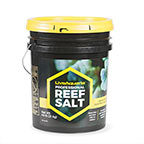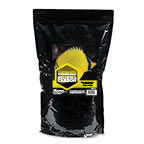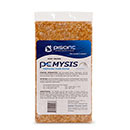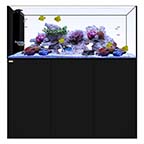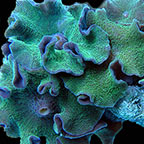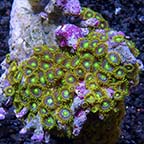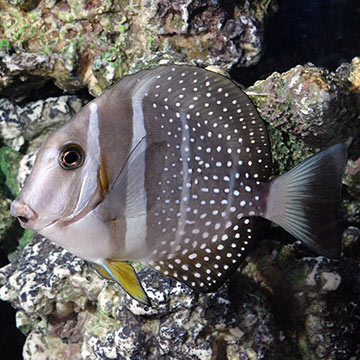
Additional locales and sizes may be available!
Additional locales and sizes may be available! Email me when availableQuick Stats
What do these Quick Stats mean? Click here for more information
What do these Quick Stats mean? Click here for more information
Overview
The Mustard Guttatus Tang, also known as the Whitespotted Surgeonfish, occurs in large schools on the reef. The body of the fish is gray with two silver stripes towards the front half, and the back half is dotted with many white spots. The tail and the pelvic fins are a striking yellow that offsets the gray color of the fish.
A 250 gallon aquarium or larger is necessary to provide plenty of swimming room for the Mustard Guttatus Tang. An aquarium decorated with large amounts of live rock is ideal for both grazing and for hiding places. It is aggressive towards other Tangs and Surgeonfish, but peaceful with other fish.
Although Tangs will eat meaty foods along with the other fish in the aquarium, it is important that they are offered plenty of marine based seaweed and algae. This will strengthen their immune system, reduce aggression and improve their overall health. Offer dried seaweed tied to a rock or use a lettuce clip, and feed at least 3 times per week. Sea Veggies, Seaweed Salad and Ocean Nutrition are all ideal products and are very easy to use.
Approximate Purchase Size: Tiny: 1-1/2" to 2-1/4"; Small: 2-1/4" to 3"; Medium: 3" to 4"; Large: 4" to 5"; X Large: 5" to 7"; XX Large 7" to 9"



